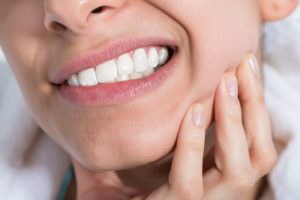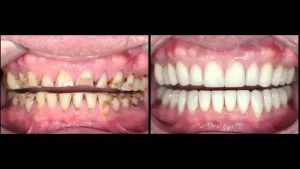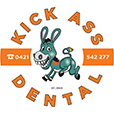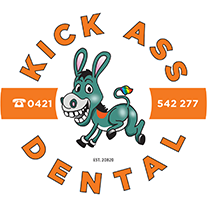Can You Fix Teeth Grinding? Effective Solutions and Treatments
Teeth grinding, also known as bruxism, is a common dental condition that involves the involuntary grinding or clenching of teeth. While it can occur during the day, it often happens during sleep, making people unaware of their habit. If left untreated, teeth grinding can lead to various dental and health issues. In this article, we’ll explore the causes of teeth grinding and discuss effective solutions and treatments to help you alleviate this problem.
The Causes of Teeth Grinding
Teeth grinding can have multiple underlying causes, including:
- Stress and Anxiety: Emotional stress and anxiety can contribute to teeth grinding, especially during sleep.
- Malocclusions: Misaligned teeth or an improper bite can lead to bruxism as the jaw attempts to find a more comfortable position.
- Medications: Certain medications, such as antidepressants, can trigger teeth grinding as a side effect.
- Lifestyle Factors: Excessive caffeine intake, smoking, and alcohol consumption can increase the likelihood of teeth grinding.
Effects of Untreated Teeth Grinding
If not addressed, teeth grinding can result in several complications:
- Dental Damage: The consistent grinding motion can wear down tooth enamel, leading to tooth sensitivity and an increased risk of cavities.
- Jaw Pain: Bruxism can strain the jaw muscles and joints, causing pain and discomfort known as temporomandibular joint disorder (TMJD).
- Headaches: The pressure from clenching the jaw can lead to tension headaches.
- Sleep Disruption: Teeth grinding can disrupt your sleep patterns, leaving you feeling fatigued during the day.
Effective Solutions and Treatments
Fortunately, there are several strategies to address teeth grinding:
Dental Night Guards
A dental night guard, also known as an occlusal splint, is a custom-fitted device that you wear while sleeping. It acts as a cushion, preventing direct contact between your upper and lower teeth and reducing the impact of grinding.

Stress Management
Since stress and anxiety are common triggers for teeth grinding, managing these factors can significantly help. Engage in relaxation techniques such as meditation, deep breathing, or yoga to reduce stress levels.
Behavioral Therapy
If teeth grinding is related to a habitual behavior, cognitive behavioral therapy (CBT) can be effective. CBT helps identify and modify the thoughts and behaviors that contribute to bruxism.
Dental Correction
In cases where malocclusions or bite issues are contributing to teeth grinding, orthodontic treatment or dental correction may be recommended. This can involve braces or other dental procedures to realign the teeth and correct the bite. To fix tooth grinding read on.
Lifestyle Adjustments
Simple lifestyle changes can make a difference. Limiting caffeine and alcohol intake, avoiding chewing on non-food objects, and quitting smoking can all help reduce teeth grinding.

Medication
In some cases, your dentist or doctor may prescribe muscle relaxants or medications to manage the symptoms of bruxism, especially if other treatments haven’t been successful.
Regular Dental Check-ups
Regular visits to your dentist are essential to monitor the effects of teeth grinding on your oral health. Your dentist can identify early signs of damage and recommend appropriate treatments.
Conclusion
Teeth grinding can have various causes and consequences, but it’s a condition that can be effectively managed. By exploring the underlying factors, seeking appropriate treatments, and making necessary lifestyle adjustments, you can significantly reduce the impact of bruxism on your oral health and overall well-being. Remember, if you suspect you’re grinding your teeth, it’s crucial to consult with a dental professional for personalized guidance and treatment.





